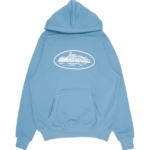Bottled Water Market Outlook
The global bottled water market has demonstrated significant growth, attaining a value of approximately USD 267.89 billion in 2023. This upward trajectory is set to continue, with projections indicating a compound annual growth rate (CAGR) of 6.4% from 2024 to 2032. By 2032, the market is expected to reach an impressive valuation of USD 469.51 billion. This robust growth can be attributed to several key factors driving the demand for bottled water.
One of the primary drivers is the increasing awareness of health and wellness among consumers. As more individuals become conscious of the health benefits of drinking water, there is a growing preference for bottled water over sugary drinks and other beverages. Additionally, the convenience offered by bottled water makes it a popular choice for on-the-go hydration, especially in urban areas where busy lifestyles prevail.
Get a Free Sample Report with Table of Contents@ https://www.expertmarketresearch.com/reports/bottled-water-market/requestsample
The rising concerns over the quality and safety of tap water in various regions also contribute significantly to the market’s expansion. In many parts of the world, particularly in developing countries, access to clean and safe drinking water remains a challenge. Bottled water provides a reliable and safe alternative, ensuring that people have access to potable water wherever they are. This aspect is particularly crucial in regions facing water contamination issues and inadequate water infrastructure.
Moreover, the growing trend of premiumization within the bottled water market is playing a vital role in its growth. Consumers are increasingly willing to pay a premium for products that offer additional health benefits, such as mineral water, flavored water, and functional water. This trend is bolstered by the marketing strategies of bottled water companies, which emphasize the unique qualities and sources of their products, appealing to health-conscious and affluent consumers.
Environmental concerns are also shaping the market dynamics. While the bottled water industry faces criticism for its environmental impact, particularly concerning plastic waste, companies are responding by adopting sustainable practices. There is a noticeable shift towards using recycled materials for bottles, developing biodegradable packaging, and promoting water stewardship programs. These initiatives not only help in mitigating the environmental footprint but also enhance the brand image and appeal to eco-conscious consumers.
Read Full Report with Table of Contents@ https://www.expertmarketresearch.com/reports/bottled-water-market
Regionally, the Asia-Pacific region dominates the global bottled water market, driven by the large population, rapid urbanization, and increasing disposable incomes. North America and Europe also hold significant market shares, with steady demand supported by the established health and wellness trends and high levels of consumer awareness regarding water quality.
Bottled Water Market Segmentation
Breakup by Type
- Spring Water
- Purified Water
- Mineral Water
- Distilled Water
- Sparkling Water
- Others
Breakup by Distribution Channels
- Supermarkets and Hypermarkets
- Convenience Stores
- Home and Office Delivery
- On Trade Channels
- Others
Breakup by Region
- North America
- United States of America
- Canada
- Europe
- United Kingdom
- Germany
- France
- Italy
- Others
- Asia Pacific
- China
- Japan
- India
- ASEAN
- Australia
- Others
- Latin America
- Brazil
- Argentina
- Mexico
- Others
- Middle East and Africa
- Saudi Arabia
- United Arab Emirates
- Nigeria
- South Africa
- Others
Competitive Landscape
- Nestlé SA
- The Coca-Cola Company
- Danone S.A.
- PepsiCo Inc.
- FIJI Water Company LLC.
- BlueTriton Brands, Inc.
- SUNTORY HOLDINGS LIMITED
- Gerolsteiner Brunnen GmbH Co. KG
- Nongfu Spring Co., Ltd.
- VOSS of Norway AS
- Grupo Peñafiel
- Bisleri International Pvt. Ltd
- Others
Opportunities
- Health and Wellness Trend: The increasing global awareness of health and wellness presents a significant opportunity for bottled water companies. As consumers become more health-conscious, they prefer bottled water over sugary and carbonated beverages. This trend is particularly strong in urban areas where busy lifestyles demand convenient and healthy hydration options.
- Premiumization: There is a growing market for premium bottled water products such as mineral water, flavored water, and functional water. These products cater to affluent consumers willing to pay more for added health benefits, unique flavors, and premium packaging.
- Emerging Markets: Developing countries, especially in Asia-Pacific, Africa, and Latin America, offer vast growth potential. Increasing urbanization, rising disposable incomes, and inadequate access to clean tap water drive the demand for bottled water in these regions.
- Sustainability Initiatives: With the rising environmental awareness among consumers, there is an opportunity for bottled water companies to adopt sustainable practices. This includes using recycled and biodegradable materials for packaging, reducing carbon footprints, and promoting water stewardship programs. Companies that lead in sustainability can enhance their brand image and appeal to eco-conscious consumers.
- Innovative Packaging: Advances in packaging technology present opportunities for innovation. Lightweight, eco-friendly, and aesthetically pleasing packaging can attract consumers and reduce environmental impact. Smart packaging solutions that provide information about water sources and quality through QR codes or other technologies can also enhance consumer trust.
Challenges
- Environmental Impact: The bottled water industry faces significant criticism for its environmental impact, particularly related to plastic waste and carbon emissions. The production, transportation, and disposal of plastic bottles contribute to pollution and environmental degradation.
- Regulatory Scrutiny: Bottled water companies are subject to stringent regulations regarding water quality, labeling, and environmental practices. Navigating these regulations can be complex and costly, especially when operating in multiple countries with varying standards.
- Water Source Sustainability: Securing sustainable and reliable water sources is a critical challenge. Over-extraction of water can lead to depletion of natural resources, affecting ecosystems and communities dependent on these sources.
- Competition: The bottled water market is highly competitive, with numerous established brands and new entrants vying for market share. Differentiating products and maintaining brand loyalty in such a crowded market can be challenging.
- Consumer Perception: Negative perceptions about bottled water, such as concerns over microplastics, tap water being equally safe, and the environmental impact of plastic bottles, can influence consumer choices and reduce demand.
Methods to Solve Challenges
- Adopting Sustainable Practices: Companies can mitigate their environmental impact by investing in sustainable practices. This includes using recycled and biodegradable materials for bottles, reducing energy consumption in production, and implementing efficient water management practices. Publicizing these efforts can improve consumer perception and trust.
- Innovation in Packaging: Developing eco-friendly and smart packaging solutions can address environmental concerns and enhance consumer engagement. Lightweight bottles, reusable containers, and packaging that provides transparency about water quality and sources can differentiate products in the market.
- Regulatory Compliance: Staying ahead of regulatory requirements through proactive compliance and engagement with regulatory bodies can reduce the risk of penalties and enhance the company’s reputation. Investing in advanced filtration and purification technologies can ensure product quality and safety.
- Water Stewardship: Ensuring the sustainability of water sources through responsible water stewardship programs can address concerns over resource depletion. Companies can collaborate with local communities and governments to implement sustainable water management practices and contribute to local water conservation efforts.
- Marketing and Education: Educating consumers about the benefits of bottled water, including safety, health benefits, and the company’s sustainability initiatives, can improve consumer perception. Transparent communication about the source and quality of water, along with eco-friendly practices, can build trust and loyalty.
- Product Diversification: Diversifying product offerings to include premium and functional waters can cater to different consumer segments and preferences. This strategy can help companies tap into the growing market for health and wellness products and reduce reliance on standard bottled water sales.
Read More Trending Reports:
Global Coco Coir Market: https://www.expertmarketresearch.com/reports/coco-coir-market
Global Waste Sorting Equipment Market: https://www.expertmarketresearch.com/reports/waste-sorting-equipment-market
Global Magnetic Plastics Market: https://www.expertmarketresearch.com/reports/magnetic-plastics-market
Media Contact
Company Name: Claight Corporation
Contact Person: Hester Laurier, Corporate Sales Specialist – U.S.A.
Email: [email protected]
Toll Free Number: +1-415-325-5166 | +44-702-402-5790
Address: 30 North Gould Street, Sheridan, WY 82801, USA
Website: www.expertmarketresearch.com
Aus Site: https://www.expertmarketresearch.com.au/


